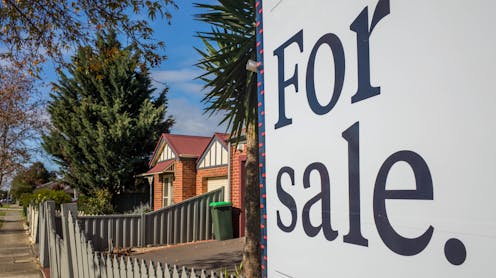How to Renew Your Car Insurance Policy or Switch to a New One.
Renewing your car insurance is generally straightforward, but it can become complicated if you need to adjust your coverage or switch providers. Whether you’re renewing your current policy or considering a new insurance provider, understanding the process will help you secure the best coverage for your needs.
How Does Car Insurance Renewal Work?
Car insurance policies typically last six or twelve months. Near the end of this period, your insurance company will send a notice about your upcoming renewal. This notice will include any changes to your premium or terms of your coverage.
When you receive this notice, you’ll have the opportunity to review the changes and decide whether to continue with your current provider or explore other options. Many insurance companies offer automatic renewals, meaning that your coverage will continue without interruption as long as you keep paying your premiums. If you have automatic payments set up, the renewal process might be as simple as updating your car insurance ID cards.
What Happens If You Don't Renew Your Auto Insurance?
If your insurance provider doesn’t offer automatic renewals, or if you fail to pay your premium, your coverage could lapse. A lapse in auto insurance can have serious consequences, including fines, license suspension, or even legal issues. Additionally, lapses in coverage can lead to higher premiums in the future and make it more difficult to find affordable insurance.
Fortunately, short lapses in coverage are fairly common, and most states offer a grace period of 10 to 20 days to address missed payments. If your policy expires, contact your insurance agent immediately to discuss reinstating your coverage.
When to Consider Not Renewing Your Existing Policy
Receiving a renewal notice is an excellent time to shop around and ensure your insurance costs are still reasonable. The Insurance Information Institute suggests getting at least three quotes from other insurers to compare rates. Switching companies during your renewal period can be easier and help you avoid potential cancellation fees.
Here are some reasons to consider switching providers:
Reduced Premiums: If you’re looking to save money, switching companies may offer you better rates or incentives.
Inadequate Coverage: If your current insurer doesn’t offer the coverage you need, switching might allow you to bundle policies and receive discounts.
Dissatisfaction with Service: Issues with customer service, rate increases, or limited coverage could prompt you to find a new provider.
What to Do If Your Current Insurer Cancels or Doesn’t Renew Your Policy
Your insurance company can cancel or refuse to renew your policy for various reasons, such as changes to your driving record, license suspension, frequent claims, or insurance fraud. Non-renewal may also occur if your provider stops offering coverage in your area or no longer covers your vehicle type.
Cancellation vs. Non-Renewal
Cancellation and non-renewal are different actions. Insurance companies cannot cancel a policy that has been in effect for more than 60 days except for significant reasons, such as fraud, license suspension, or failure to pay. If your policy is canceled, you’ll need to secure new coverage immediately to avoid a lapse.
Non-renewal, on the other hand, means your insurer decides not to continue your policy when it expires. Typically, you’ll receive notice of non-renewal along with the reason. In some cases, you can appeal this decision and potentially have your policy reinstated, though often with higher premiums.

Renewing Your Car Insurance After Your Policy Expires
If your policy has expired, you may still be able to renew it within a short grace period. Contact your insurer as soon as possible to explore your options. While some companies may reinstate your policy, others might require you to pay higher premiums due to the lapse in coverage. If reinstatement is not possible, look for a new insurance provider promptly to avoid prolonged gaps in coverage.
Step-by-Step Guide to Switching Car Insurance Companies Before Your Renewal Date
Switching insurance companies can help you secure better rates or coverage. Here’s how to do it without experiencing a lapse:
Step 1: Determine When Your Current Policy Period Ends
Most policies last six or twelve months. You’ll receive a notice before the renewal date, giving you a chance to accept or reject the coverage. Pay attention to rate increases, especially if you’ve had recent changes such as a new car, an accident, or adding a teen driver to your policy.
Step 2: Check for Better Auto Insurance Rates
Shopping around can reveal lower rates, but it’s not the only way to reduce your premiums. Consider raising your deductible or reviewing your policy to ensure you’re receiving all possible discounts. Be aware that if you have a car loan or lease, your lender may require specific coverage levels.
Step 3: Decide If You'll Decline or Renew Your Existing Coverage
If you choose to stay with your current insurer, notify them before your policy expires and pay the premium on time. If you decide to switch, secure a new policy first, then inform your old insurer to avoid fees and ensure there is no gap in coverage.
Step 4: Secure New Coverage Before Your Existing Policy Expires
This is crucial for avoiding lapses. Do not cancel your old policy until your new one is active. Make sure your new policy is fully paid and effective before your old policy expires. Starting your new policy a few days before your old one ends can provide a cushion and allow for a seamless transition.
Step 5: Cancel or Decline Coverage with Your Previous Provider
Once your new policy is active, notify your old insurer that you won’t be renewing. This can often be done online or by phone. Remember to update your insurance information with your car loan lender, if applicable.
Conclusion
Renewing or switching your car insurance doesn’t have to be a daunting task. By reviewing your options and understanding the steps involved, you can ensure you maintain continuous coverage and find the best rates. Whether you choose to renew your existing policy or switch to a new provider, taking the time to assess your needs and explore your options will help you secure the right coverage at the right price.


















 English (United States) ·
English (United States) ·